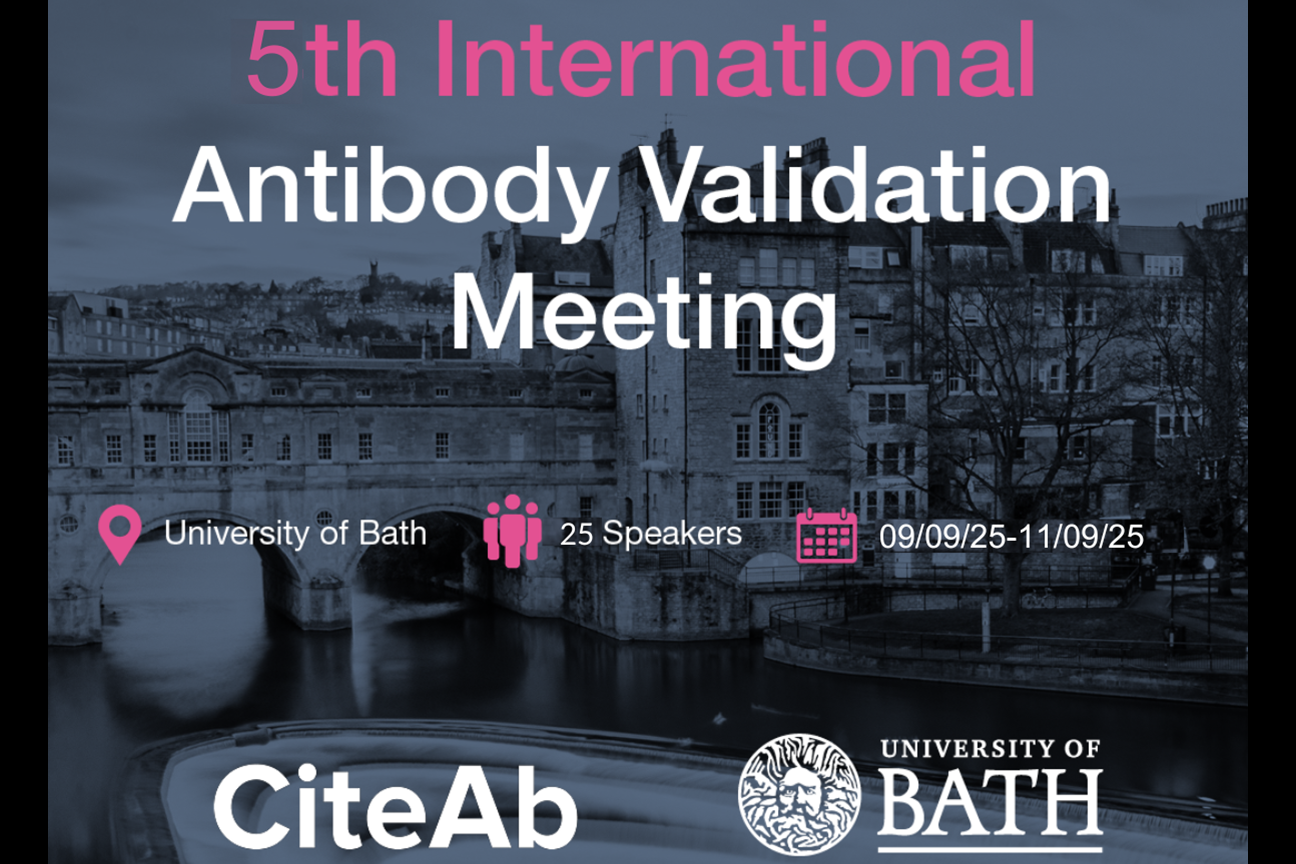It is estimated that at least 20–30% of protein studies rely on antibodies that are not fit for purpose, leading to wasted resources and irreproducible results (eLife 2023). Rigorous antibody validation (testing for specificity and selectivity across applications) is therefore crucial to ensure experimental success and scientific reliability.
This year’s meeting, organized by CiteAb in collaboration with the University of Bath and AstraZeneca, took place in Bath on September 9–11. The event featured 25 speakers who shared insights on Multiplexing & Spatial Biology, Artificial Intelligence in Antibody Design, and Open Sharing & Education. All talk were recorded and are freely accessible here.
Among the invited speakers, Johan Duchêne presented his lab’s work on the validation of ACKR1/DARC antibodies (Cell Stem Cell 2022), illustrating how poor-quality antibodies can misdirect research and the challenges of correcting the scientific record. His talk is available online here.
Key highlights on open science and education from the meeting included:
These contributions emphasized that transparency, collaboration, and education are essential for improving antibody reliability and advancing reproducible science.Two tools for checking antibody validation are recommended to the scientific community:
- CiteAb: A company providing a searchable database of research antibodies and reagents, ranked by their use in publications and validation quality. It helps researchers identify reliable products and supports reproducible science CiteAb.com
- YCharOS: A non-profit organization that systematically characterizes commercially available antibodies using rigorous validation methods and publishes all data openly. Data are also available on the Only Good Antibodies (OGA) platform. YCharos.com, OGA
References:
eLife 2023, DOI: 10.7554/eLife.91645.2
Cell Stem Cell 2022, DOI: 10.1016/j.stem.2021.11.010
